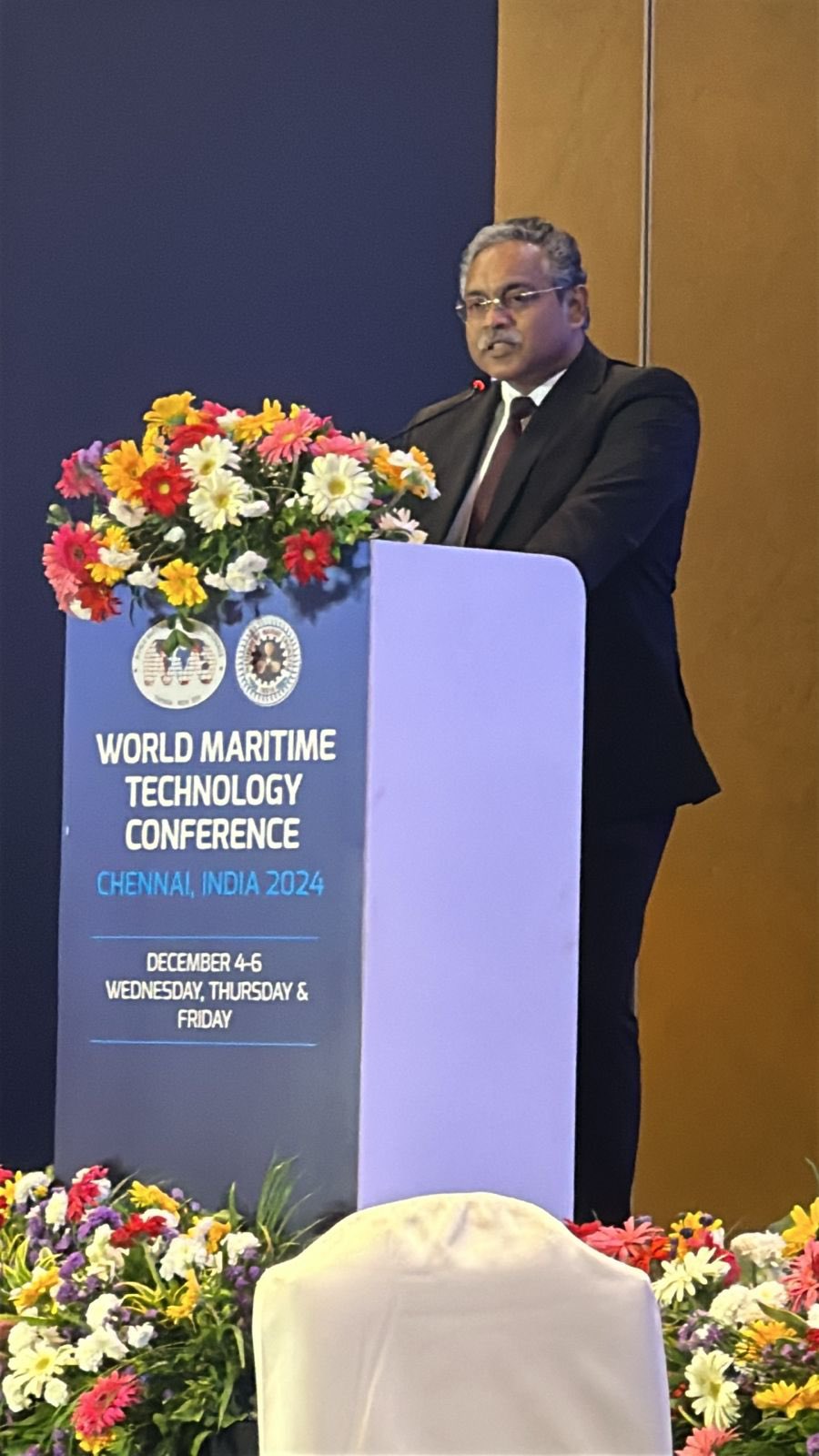
DG Shipping has a five-pronged strategy to arrest recruitment fraud in the maritime sector
CHENNAI : The Directorate General of Shipping has planned a multi-pronged strategy to arrest the menace of the illicit and surreptitious practices by manning agencies fleecing the Indian seafarers.
A recent report by Gujarat Maritime University and ISWAN found that India, being one of the world’s leading providers of seafarers with a workforce of around 2,50,000, continues to see many of its seafarers fall prey to unregistered agents.
Reacting to the report, the Director General of Shipping (DGS), Shyam Jagannathan agrees: “there is a serious concern of illicit surreptitious practices by manning agencies.”Director General of Shipping participated in the World Maritime Technology Conference being held at Chennai from 4th to 6th December 2024 collaborating with IMEI, IRS, DNV, LR, BIMCO, INTERTANKO and Shipping majors on global Shipping and furthering Indian maritime interests

One major issue faced by the DGS is the old technology stack used for the existing Recruitment and Placement Services Licensee (RPSL) and E-migrate module, which is managed by the Ministry of External Affairs.
According to the rules, an RPSL cannot charge any fees from the seafarer; their income comes from the ship manning firm. The seafarer has to be signed-on as per either a Common Bargaining Agreement or Seafarers Employment Agreement, which then binds the seafarer to a convention vessel.
Unfortunately, illicit practices are still prevalent. The RPSL often creates many agents unofficially, who do not go by the compliance requirements. They entice the seafarer by saying, “look, you have already spent about ₹5 lakh for your education for six months. If you want to get on a ship, I can arrange it for ₹3-₹4 lakh. Once the seafarer takes the illicit consideration, the agent also takes their documentation — the Continuous Certificate of Discharge or the passport — trapping the seafarer in a difficult situation,” Jagannathan explained in Chennai.
There is no sanctity to this arrangement because the agent does not have the credentials of RPSL, who are licenced by the DGS. There are 582 RPSLs in the country and only 5 per cent are doing these illicit practices, he said.
Due to outdated technology, the DGS has issues tracking the vessels they have been on-boarded. “An RPSL can show a particular vessel registered under its inventory and then put the seafarer on that vessel but actually sign him on to another vessel. This has been detected in multiple cases, including in the ship Prestige Falcon, which sank. Four seafarers who passed away were technically on another vessel in our system, but they were physically on another vessel. This is an illegal practice,” he said.
Previously, the DGS was not able to trigger SMS alerts to seafarers. However, from August 14, 2024, it started SMS alerts. Every time a seafarer is signed on to a ship by an RPSL, he/she receives an SMS. He has to log in to his credentials in the DGS website and accept the vessel and the port of sign-on, he said.
The five-pronged strategy
To prevent all the above, the DGS is doing five things to ensure that seafarers are not cheated. The first is moving to a new technology stack where the RPSL are to be monitored for all onboarding and sign-ons.
The second, is working on a social media connection to inform seafarers about their rights and responsibilities. This will be ready by April of 2025, he said.
The third, is to provide seafarers with basic training courses informing them about their rights, privileges and how they should not be duped lead astray by such criminal elements.
The fourth, is a law to take or initiate criminal action against lumpen and criminal elements in the garb of either RPSL or any other agent, misleading, cheating and creating fraud with seafarers, he said.
The fifth is a 24/7 grievance helpline to be operational hopefully by April or May to help seafarers to reach out to DGS in case of any trouble. Each of these inputs can be mapped to the unique ID and there will be a dedicated escalation matrix. This will allow cutting edge reach, he said.

